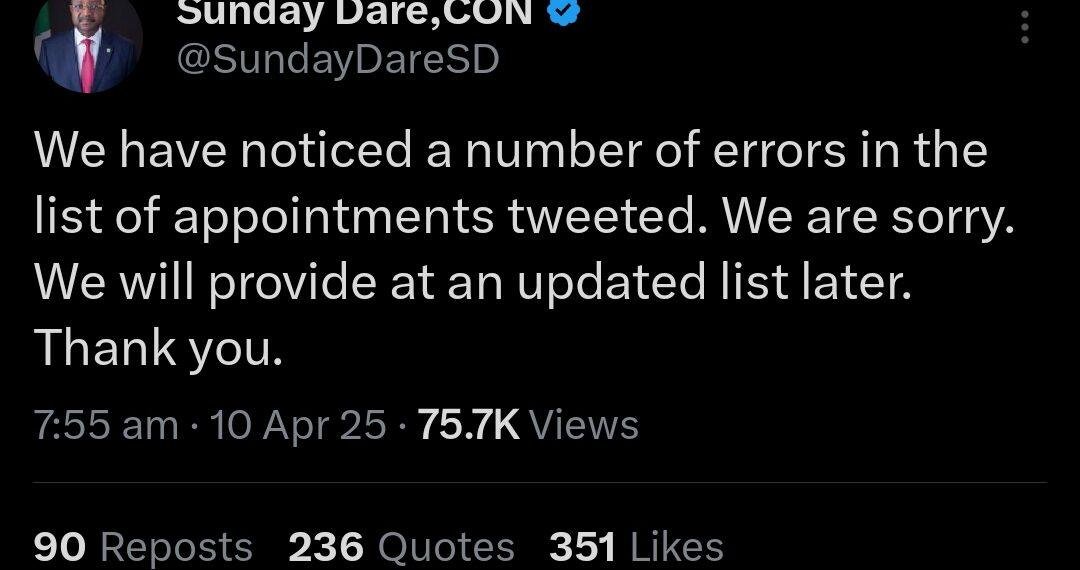In a bid to silence growing criticism over what many have called President Bola Ahmed Tinubu’s “lopsided appointments,” the Presidency released a list intended to showcase ethnic and regional balance within his administration. But the move has backfired spectacularly, drawing even more scrutiny and forcing an official apology after key omissions were discovered.
Opposition politicians and civil society voices have been increasingly vocal in accusing President Tinubu of favouring his South West base at the expense of other regions. The issue reached a boiling point recently when Senator Ali Ndume, a prominent APC lawmaker from Borno South, publicly criticised the President in an Arise Television interview. Ndume boldly accused Tinubu of breaching the federal character principle, stating that loyalty to the party should not override the constitutional need for inclusivity.
In response to these mounting allegations, the Presidency published a list of Tinubu’s appointees along with their geo-political affiliations. According to the document, 29 appointees hail from the South West, 35 from the North West, 22 from the South-South, 16 from the South East, 25 from the North Central, and 24 from the North East. The list appeared to show a reasonable spread—until Nigerians noticed a glaring error that has only intensified the backlash.
Read also: Mahmoud applauds Tinubu’s infrastructural development in Abuja, inaugurates Cuzape Mall
Tinubu’s appointments lopsided, against Federal Character — Senator Ndume
Allow democracy to thrive in Nigeria, group urges Tinubu
Shockingly, the list omitted some of the most powerful figures in Tinubu’s government, including his Chief of Staff, Femi Gbajabiamila—who is also from the South West. Critics argue that this deliberate or careless exclusion paints a misleading picture of regional representation and further marginalizes already underrepresented zones like the South East.
As the list began circulating online and igniting fierce debates, social media platforms buzzed with accusations of manipulation, misinformation, and lack of transparency. In the face of rising outrage, Sunday Dare, Special Adviser on Media & Public Communication and Spokesperson to the President, publicly apologised for the “errors” in the released document.
However, for many Nigerians, the damage is done. The botched list has not only deepened suspicions of ethnic bias but also raised fresh concerns about the accuracy and integrity of official communication from the nation’s highest office. As pressure mounts, all eyes are now on President Tinubu to take meaningful steps toward national inclusion—or risk further alienating a large section of the country.






